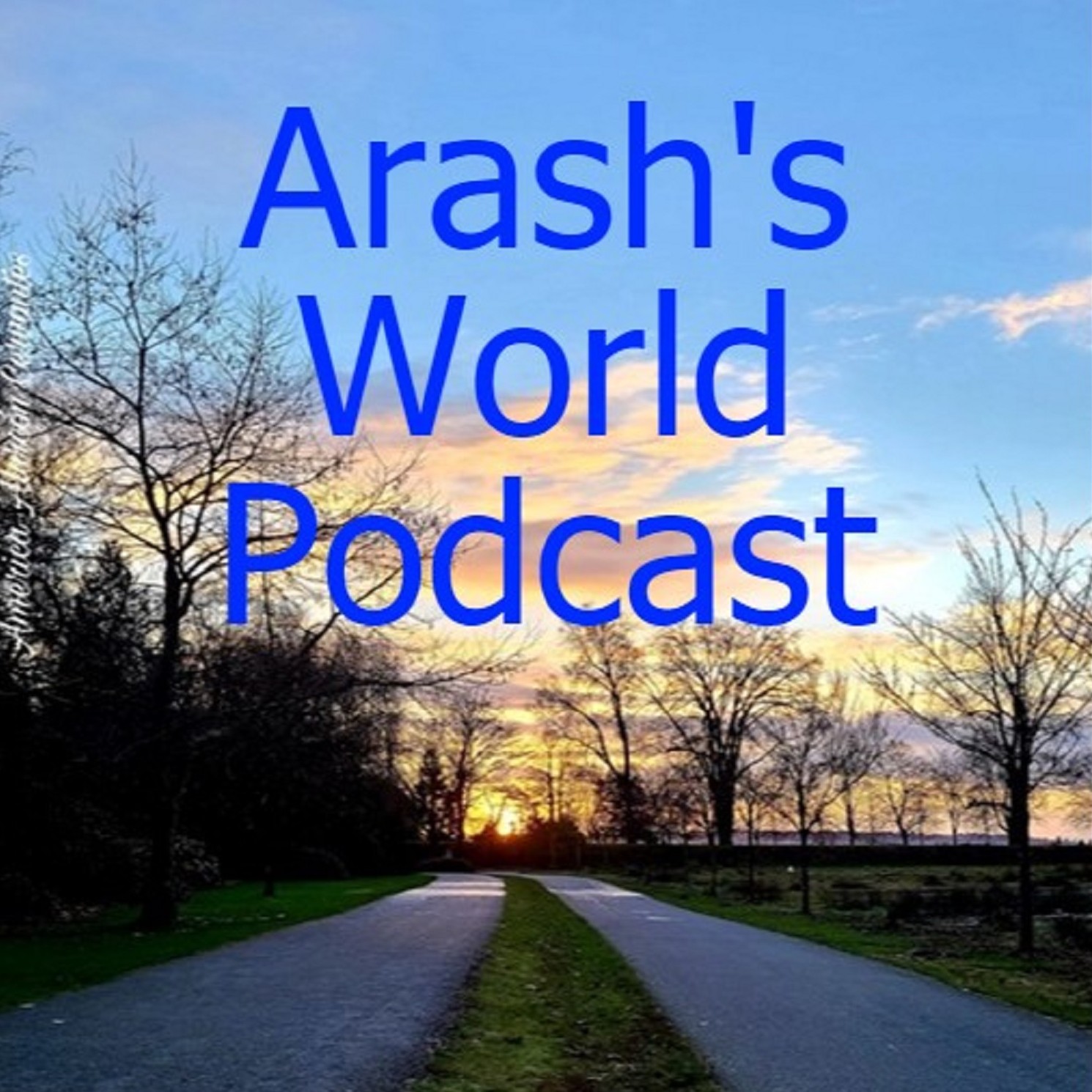
7.6K
Downloads
199
Episodes
This podcast is affiliated with the blog Arash's World dealing with existential issues and solutions in health and wellness, psychology, and philosophy. By providing reviews on books alongside exclusive, insightful & thought-provoking interviews with health & wellness experts, renowned psychologists & psychotherapists as well as global thought leaders and life coaches, we put together and forge individual holistic paths toward health, happiness, and wellbeing in your personal & professional life!
This podcast is affiliated with the blog Arash's World dealing with existential issues and solutions in health and wellness, psychology, and philosophy. By providing reviews on books alongside exclusive, insightful & thought-provoking interviews with health & wellness experts, renowned psychologists & psychotherapists as well as global thought leaders and life coaches, we put together and forge individual holistic paths toward health, happiness, and wellbeing in your personal & professional life!
Episodes

Thursday Aug 21, 2025
Thursday Aug 21, 2025
In this episode, I have the great pleasure of speaking with Aamir Hussain about his debut novel, Under the Full and Crescent Moon, and how an IT professional who loves reading fantasy and science fiction turned novelist. Aamir shares the inspiration behind his novel and explores the novel concept of a Muslim matriarchy, a theme that challenges common and current perceptions of Islam. Aamir emphasizes the importance of storytelling in bridging cultural gaps and fostering understanding, drawing from his personal experiences as a Muslim immigrant as well as his extensive research into historical contexts to enrich his narrative.
Moreover, we talk about female agency and interfaith marriages, both of which are central to Aamir's novel. He highlights the strong women in his life and their influence on his writing as he aims to showcase the diversity and strength of Muslim women everywhere. Our discussion also touches upon the role of fatwas in Islamic law, with Aamir explaining their historical context and how they are portrayed in his book.
Aamir then reflects on the challenges and rewards of writing his first novel, describing the meticulous research and dedication that was required to bring his vision to life. He speaks about the support he received from his family, particularly his wife, and the importance of perseverance in the face of obstacles.
Finally, Aamir underscores the significance of open dialogue and the exchange of ideas while advocating for a nuanced understanding of Islam, one that appreciates its diversity and adaptability. Aamir also reflects upon how Islam is often perceived in Western societies in a rather narrow and monolithic way but how technology despite its interconnectedness may also be a contributing factor to this view. By sharing his story and insights, Aamir hopes to inspire others to explore their own creative paths and contribute to a more inclusive and empathetic world.

Saturday Aug 16, 2025
Saturday Aug 16, 2025
In this episode, I have the great pleasure of speaking with Cynthia Moore about her multifaceted career from a playwright and performer to a psychotherapist, and, more recently, the author of “Dancing on Coals: A Memoir of an Overperformer.”
In the book, Cynthia chronicles her transition from the sphere of theatre to the domain of psychotherapy. She reflects on how her longstanding pursuit of approval, recognition, and enlightenment was rooted in formative childhood desires for a sense of belonging. Yet she has discovered that life’s most fulfilling experiences tend to be found in the simplicity of everyday moments rooted in the present, including a pancake breakfast on a lazy morning.
We also talk about the transformative era of the 1970s, when theatre was marked by innovation and a willingness to challenge established conventions. Cynthia shares her dynamic and at times tumultuous experiences in the theatrical community, alongside the revolutionary and occasionally precarious relationships she encountered along the way, as well as the difficulties of asserting her authentic voice within a predominantly male environment.
Furthermore, we talk about psychology and spirituality and how Cynthia’s decision to pursue psychotherapy was not simply a career change, but rather a leap into uncharted territory—a personal “dark night of the soul.”
Through this journey, she found a space for genuine self-expression and healing, integrating personal challenges, spiritual practices, and the principles of therapeutic support. This was further enriched by insights into childhood trauma, the role of intuition, and Buddhist meditation, again culminating in the recognition that true contentment is to be found in the present moment.
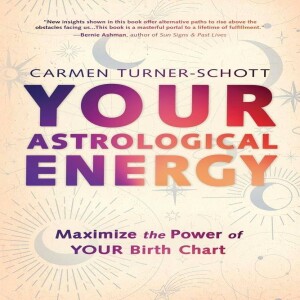
Sunday Jul 06, 2025
Sunday Jul 06, 2025
In this episode, I have the great pleasure of speaking with author, counselor, clinical social worker, and mystical astrologer Carmen Turner Schott about the intersection and interplay of astrology, destiny, healing as well as personal growth and agency.
As Carmen explains she uses astrology as a tool for self-awareness for us to heal, transform, and become more resilient, while her down-to-earth book “Your Astrological Energy: Maximize the Power of Your Birth Chart” gives us details about the power of our own unique astrological energy at play. The planets and constellations can give us important clues about our decisions, the reasons behind our emotions and how to best move forward in our personal and professional lives.
On a macro level, there are various tumultuous events occurring astrologically right now, which explains why this era is such a milestone and how and why it is very different and more revolutionary compared to most of the other time periods.
Moreover, the alignment of stars can give us important clues about our personal lives including our karma, soul mission, marriage, and soulmates. While the North node has an aspect that is more fixed and determined in terms of our unique fate and destiny, there are other aspects that are more flexible and contingent upon our own decisions and actions. A combination of both may apply to the quest of our soul mate, where karma plays a role, but we may have a say in how things turn out in the end.
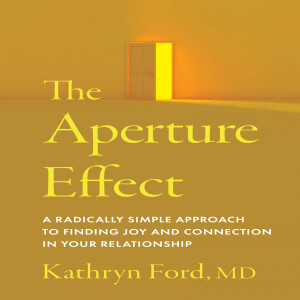
Thursday Jun 19, 2025
Thursday Jun 19, 2025
In this episode, I have (once again ;) the great pleasure of speaking with couple therapist and psychiatrist Dr. Kathryn Ford about her book “The Aperture Effect: A Radically Simple Approach to Finding Joy and Connection in Your Relationship” and how aperture awareness can improve and strengthen our personal relationship on many levels.
Aperture awareness is a distillation and combination of psychology, mindfulness, and neuroscience and can help us to become more aware of and attuned to inherent tendencies in our thoughts and behaviors, to move from a conversation of who’s right to a balanced dialogue and to effectively deal with different personal issues and problems regarding love and romance.
We touch upon openness, active listening, emotional overload, and vulnerability, how and why it is often hard (especially for men) to open up to their loved ones and what we can all do about it.
Moreover, Kathryn explains how mindfulness and empathy can improve communication, how to be less self-defensive and learn to focus not only on words and content but to uncover and appreciate the interplay between content and underlying feelings and emotions.

Saturday Jun 14, 2025
Saturday Jun 14, 2025
In this episode, I have the great pleasure of speaking with Dr. Carl Rothschild about the countless benefits of Infrared Light Therapy as well as his book “Illuminated Healing: Unraveling the Mysteries of Light Therapy,” which gives detailed scientific explanations about the particular processes at hand.
We also talk about the difference between being a healer and a traditional medical doctor including how the Western medical system is often driven by money and profit via surgeries and pharmaceutics, and how the medical model is less focused on finding a cure or healing the patient. This may explain to some extent why alternative healing modalities such as infrared light therapy are not given the recognition they deserve despite scientific studies proving their effectiveness and health benefits.
Dr. Carl Rothschild also explains how people tend to spend a lot of money on dieting and on pills to lose weight despite their lack of success and their potential risk of negative side effects. Yet, with a combination of red and infrared light therapy, this can be achieved with very few if any negative effects.
Finally, we also look at overall health practices that ensure illnesses and diseases are kept at bay, including through the adoption and practice of healthy lifestyles and good lifelong eating habits with little need for medication, diets, or other corrective measures.
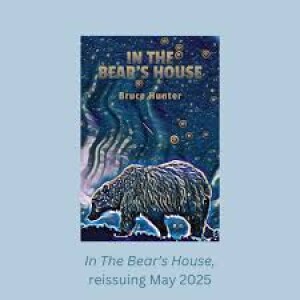
Sunday May 18, 2025
Sunday May 18, 2025
In this episode, I have the great pleasure of speaking with Bruce Hunter, author of the fictional memoir In the Bear’s House, which he describes as a series of love stories about land, mountains, nature, wilderness, and people, including a love relation between a very creative mother and her deaf son named Trout.
Bruce himself is deaf and is using technology to be able to hear, and he talks about the importance of inclusivity, which the boy Trout first discovers when encountering First Nations people. In fact, the universal message of Bruce’s book is that fear is the greatest disability, as it can cripple us and lead to discrimination and other hurtful acts and measures.
Moreover, Bruce shares various personal stories whether it is his experience of teaching and how and why teachers tend to be the most difficult people to understand or explaining how hearing via assistive technology and a hearing aid has been very difficult and how this involves a lot of work and persistence. He also outlines research into neuroscience and how the brain not only adapts and compensates but indeed rewires and actively engages with the whole process, hence shaping and transforming it.
Finally, Bruce also speaks the language of soil due to his studies and experiences of being an arborist, which connects him to First Nations people and many others across the world, particularly in Italy; at the same time, he tells us that failure should not be something to curb or block us but that it ought to encourage us to keep trying harder. As Bruce states, this is not his first rodeo and that when you fall, you need to get back up again, or to use a baseball analogy, to go out and bat again.
We conclude that it does not merely come down to positivity but that we need to appreciate and celebrate all aspects of life, including grief and its darker parts. Life is often challenging, and it takes a lot of courage to face its many obstacles, but it is also rewarding, beautiful, and personally enriching, while it is of the utmost importance to connect with others via feeling and empathy as opposed to being blinded by fear, judgment, and prejudice.

Saturday May 10, 2025
Saturday May 10, 2025
In this episode, I have the great pleasure of speaking with Iranian-Canadian author and book publicist Hollay Ghadery about cultural identity and mental health, her memoir “Fuse,” her collection of poems as well as her “pathological love” for books.
Hollay openly and candidly talks about growing up as a biracial woman and the various challenges and difficulties that took a toll on her health and wellbeing, including disordered eating with anorexia and bulimia, OCD, and addiction.
In her life, she often felt like she did not belong in one space or another but found herself in-between spaces and within mixed cultures as it had become quite complex to define herself not only physically but also psychologically, mentally, and emotionally due to the lack of a cohesive cultural identity.
Yet, throughout her many challenges, she was aided by the arts, humanities, and literature. Hollay spent a lot of her life with books. We discuss how it is also through literature that we come to express our own viewpoints and lived and felt experiences and are better able to understand and connect with others. As she explains, reading can develop and nurture a sense of common humanity as well as foster empathy and compassion for ourselves and others.
As the title of her memoir shows us, it is a type of fusion that creates a new beautiful and authentic whole out of the sum of the different multi-faceted parts leading to moments of “joy pockets” while at the same time embracing and leaning into a healthy and robust sense of humor.
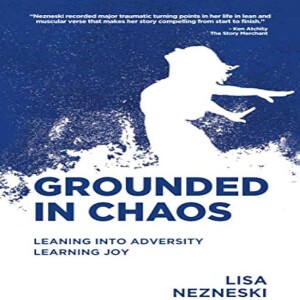
Wednesday May 07, 2025
Wednesday May 07, 2025
In this episode, I have the great pleasure of speaking to Lisa Nezneski, a Shamanic energy healer, a mindfulness teacher, a pharmacist, and author of the book “Grounded in Chaos: Leaning into Adversity, Learning Joy.”
Lisa has been involved in the healing arts for decades now and has had access to her own holistic toolbox that includes a wide range of techniques, methods, and modalities, including pharmacognosy (the study of herbal and natural medicine), meditation, mindfulness, Reiki, and shamanic healing sessions.
Throughout her healing journey where she dealt with various difficulties and hardships regarding health and her personal life, she has learned to be and remain grounded when chaos falls upon us, to accept and embrace change, and to become more resilient in the process.
One of the takeaways is to remind ourselves that we are connected to everything and that we are never alone. We can also take comfort and solace not only in other people but also pets as they can often support us in various ways when things are not going well in our lives.
Moreover, it is important to have a good healthy sense of humor, to feed and cultivate feelings of hope and optimism, to reach out to others, and to explore and find different ways and methods of releasing stuck toxic energies to prevent ill health, health complications, and disease.
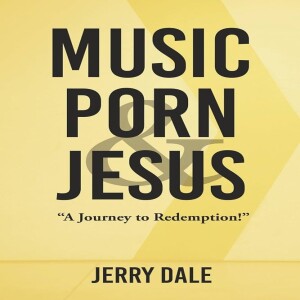
Sunday May 04, 2025
Sunday May 04, 2025
In this episode, I have the great pleasure to speak to author, music industry leader, and storyteller Jerry Dale, also known as “JD” about his inspiring memoir “Music, Porn & Jesus: A Journey to Redemption” in which he talks about his personal experiences in the music industry and the dark side of fame.
In the 90s, Jerry worked with a wide range of top tier artists, including Destiny’s Child, Jennifer Lopez, Mariah Carey, Celine Dion, Maxwell, and Snoop Dogg. Being in that position brought him success, money, and fame, but it came also with a cost and a toll to his overall health.
Furthermore, JD was involved with the adult entertainment industry and outlines some of the dangers and challenges within that field and how many young women would start as waitresses and then be tempted to become dancers in a culture that prioritizes money and excess.
However, Jerry’s life story is one of second chances, redemption, and transformation. He was able to break free from the dark side of fame that had captured and trapped him in his young adult life and found himself back on the right and moral path. His book and this podcast are testament to how he has used his experiences not only to grow personally and spiritually but to openly share his experiences with everyone and to demonstrate how hope and redemption are never out of reach.
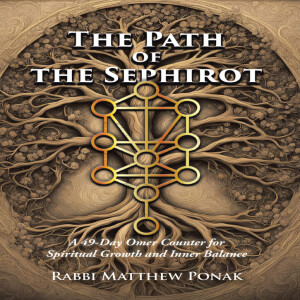
Tuesday Apr 22, 2025
Tuesday Apr 22, 2025
In this episode, I have (once again!) the great pleasure of speaking with Rabbi Matthew Ponak, Teacher of Jewish mysticism, spiritual counselor, and author of “The Path of the Sephirot: A 49-Day Omer Counter for Spiritual Growth and Inner Balance.”
Rabbi Ponak explains how the Kabbalah is a living tradition that helps us understand the journey between the finite and the Infinite where divine emanations flow and interact and how to reveal and manifest them in our lives.
By following “The Path of the Sephirot,” we are tapping into divine qualities that we then wish to embody in our lives with each week being dedicated to specific sacred attributes starting with lovingkindness, followed by boundaries, beauty and harmony, action, yielding, connection, and receiving. On the final day, the Shavuot, all of them are then integrated within each other and themselves.
We discuss various spiritual practices that can help us not only grow but also find inner balance in the process, including the importance of the Sacred No as a form of setting boundaries for ourselves and for others, the overall combination of the Yes and No energy coupled with a balance of action and yielding. All this deep introspection and concrete action would then lead to tikkun, which means transformation or repair, and how by healing ourselves, we can heal the world as it is all interconnected.
Finally, we talk about the importance, relevance, and symbolism of the Tree of Life in the Bible and how psychoanalysis has interesting and intricate links and ties with Jewish mysticism, whether unconsciously through Sigmund Freud or as part of Jung’s interest and study of the Kabbalah. These spiritual insights and practices have the potential of enriching our lives and help us elevate our own vibes and frequencies and gain inner balance.
